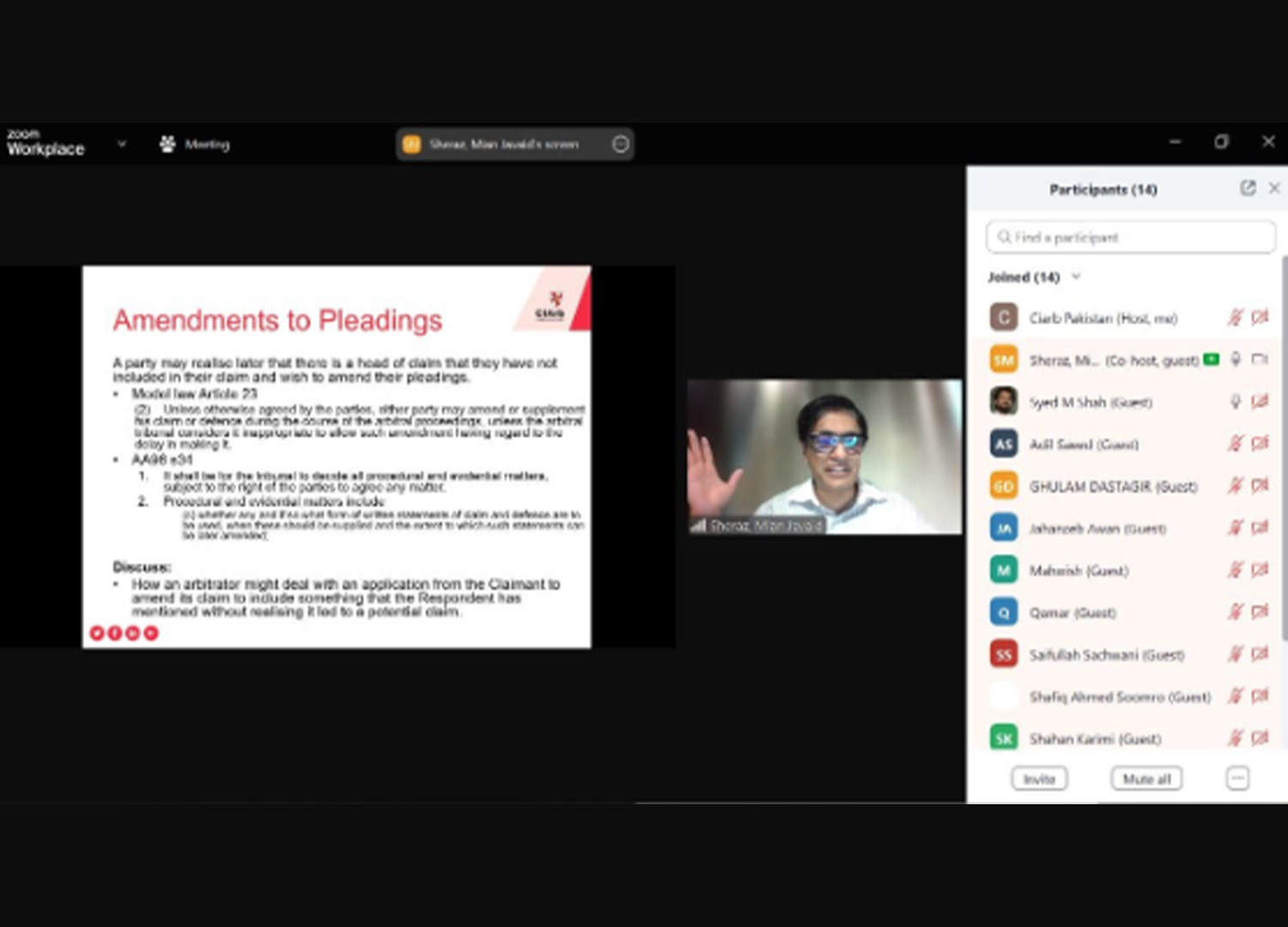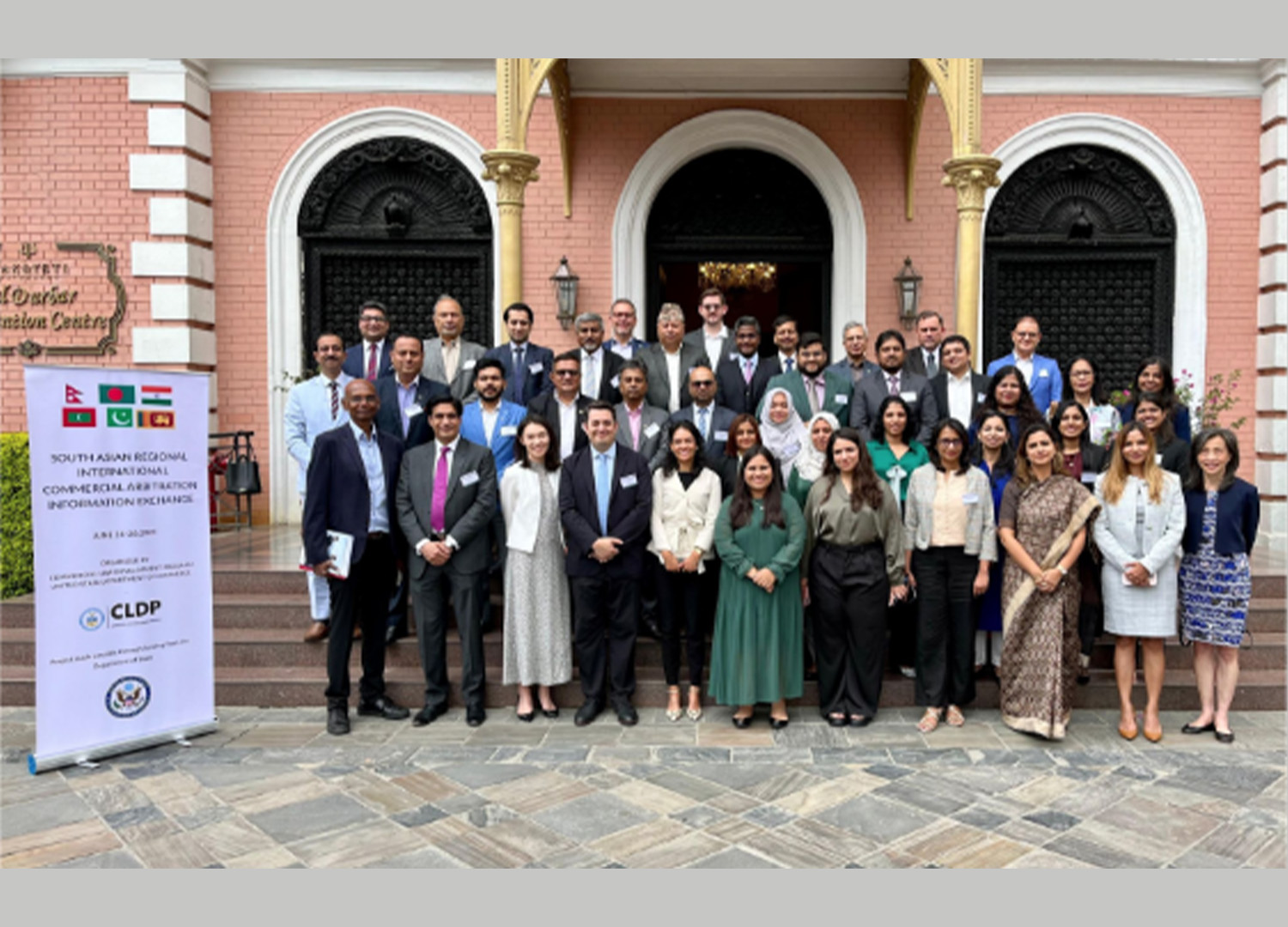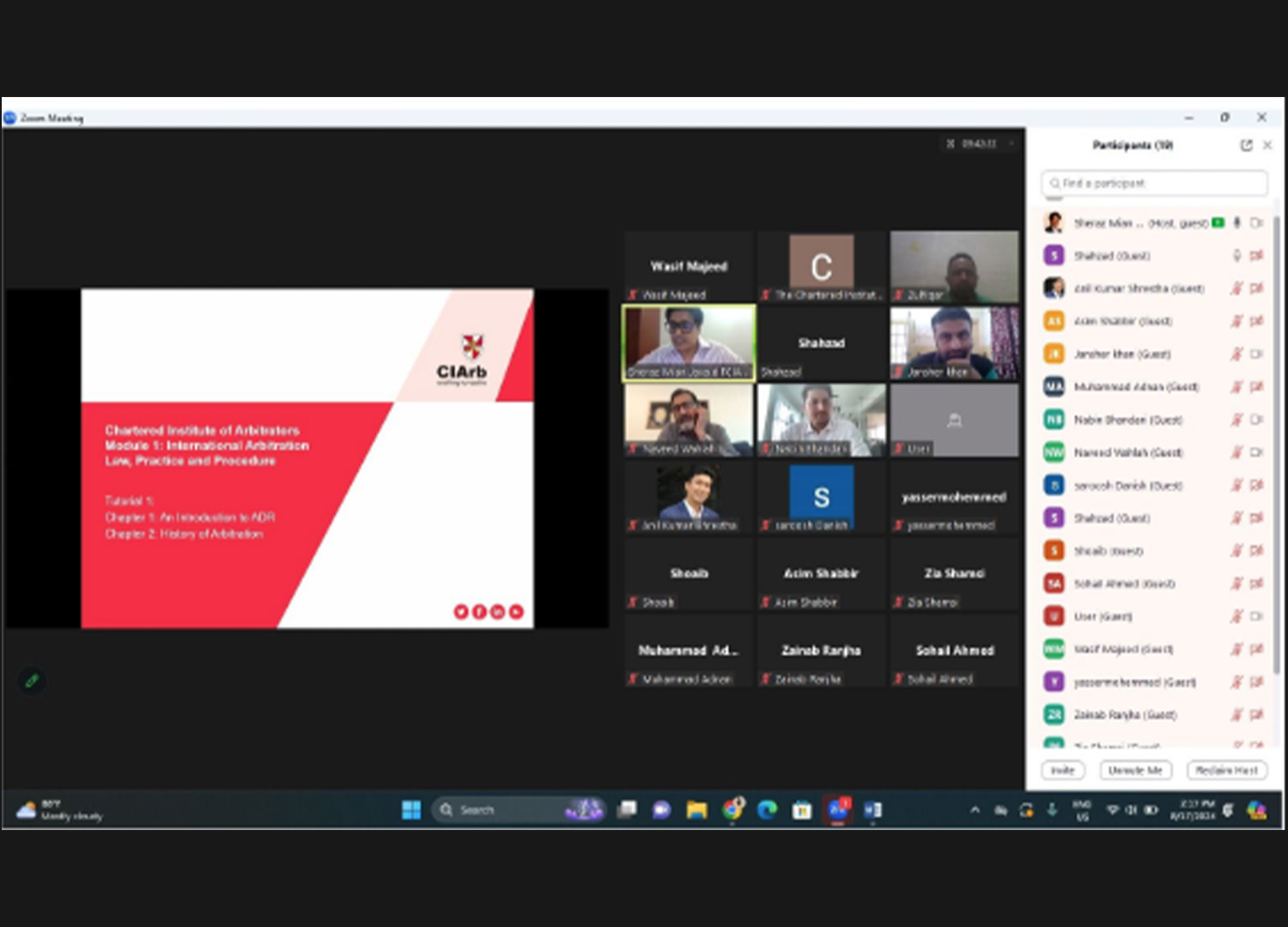MSJ Advocates Collaborative Risk Sharing at CIArb Pakistan Webinar on Infrastructure Project Delays
Unpacking the Root Causes of Disruption
In his remarks, MSJ identified four primary culprits behind large-scale project derailments: poor risk allocation, late design approvals, unrealistic baselines, and incomplete site access. “These factors are often underestimated or inadequately addressed at the contract drafting stage,” he said, “yet they are responsible for a large share of dispute escalation.”
He cautioned against the prevalent practice of risk dumping—the unfair transfer of risk onto contractors without structural support. “Risk dumping is not risk management,” MSJ asserted. “It’s time we embed proactive collaboration at the contract level, rather than scramble for remedies after disputes arise.”
Structural Solutions: From Dispute Boards to NEC Mechanisms
MSJ emphasized that project resilience starts at inception, with clear protocols and dispute prevention frameworks. “Early-stage mechanisms like dispute boards, pre-agreed delay analysis protocols, and collaborative NEC-style frameworks should be standard tools in any large project,” he noted, referencing best practices from the UK and international models.
These mechanisms, he explained, help balance obligations and encourage mutual accountability. "They provide a scaffold for addressing issues as they arise, not years later in arbitration," he added.
From the Tribunal’s Chair: The Power of Documentation
One of the most practical insights came when MSJ shared a tip that resonated deeply with both contractors and legal professionals: “Treat your documentation as if it’s already in arbitration.” According to MSJ, the most influential factor in delay adjudication is contemporaneous evidence—including site diaries, correspondence logs, updated programs, and detailed audit trails.
“Tribunals trust the facts written in real time,” he explained. “Retrospective narratives rarely survive scrutiny if unsupported by clear, sequential documentation.”
Future Trends: AI and Digital Tools in Delay Adjudication
Looking ahead, MSJ touched on how artificial intelligence and digital tools are transforming the adjudication landscape. “We are entering an era where forensic delay analysis may be conducted using AI algorithms. Drone footage, BIM integration, and smart data trails will redefine how we assess project delays,” he remarked.
He projected that by 2030, arbitrators might routinely examine AI-generated delay maps, supported by real-time digital evidence, bringing a new level of accountability and transparency to dispute resolution.
Panel and Participation
The session concluded with a lively panel discussion featuring industry experts Fakhar-un-Nisa (C.Eng, LLB, LLM), Victoria Tyson, and Kashaf Fatima, MCIArb, each adding depth to the conversation with jurisdictional, technical, and legal perspectives.
MSJ expressed gratitude to CIArb Pakistan Branch for hosting a timely dialogue on one of the most pressing challenges in infrastructure development. “Events like this are crucial for bridging the gap between engineering practice and legal outcomes,” he concluded.











